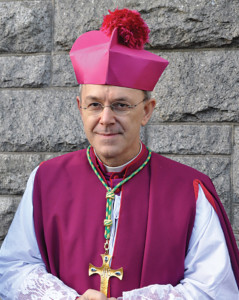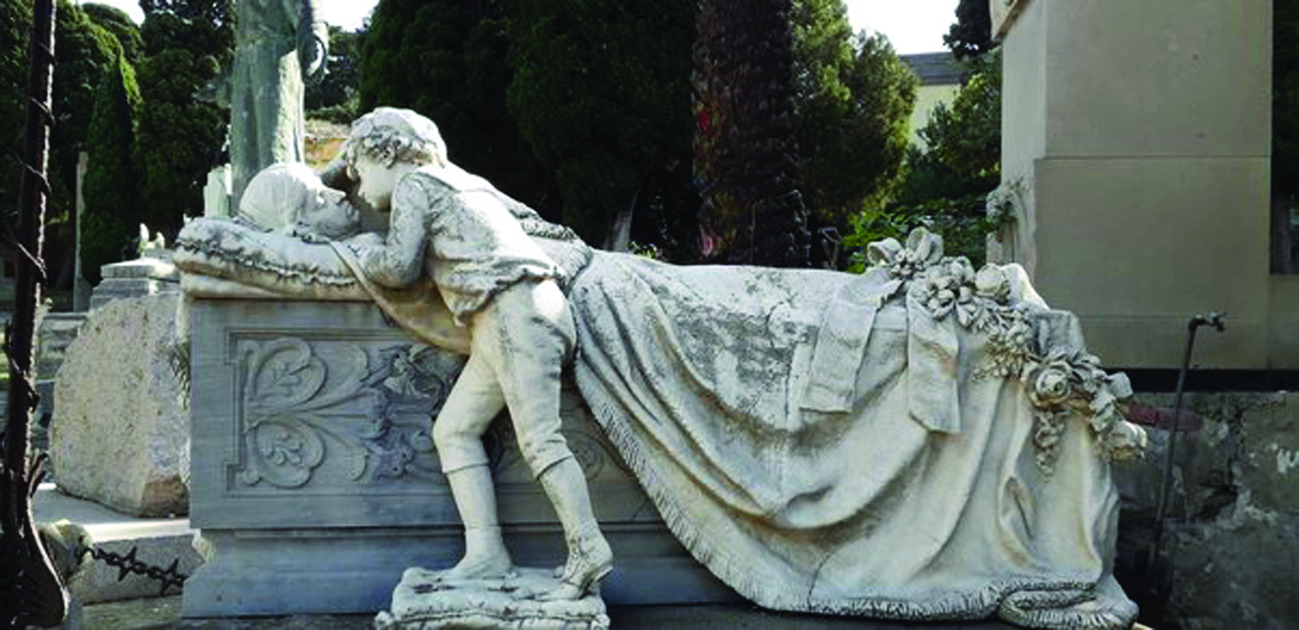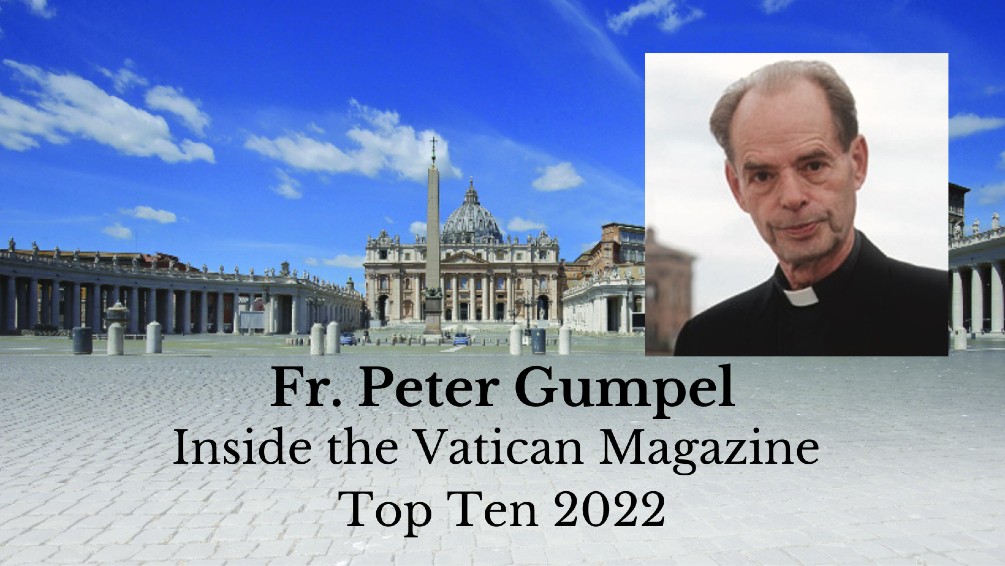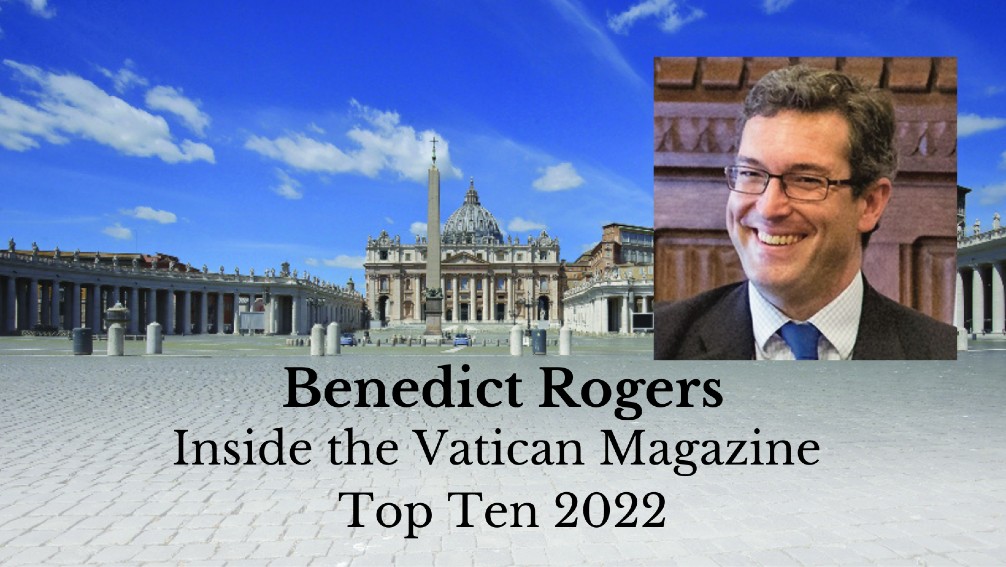“Preferential option for the poor”: this formula has long been used in the Church, in line with the teachings and commands of Our Lord, to indicate that the Christian faithful should accord preferential treatment to the less advantaged and fortunate sections of society, the marginalized, downtrodden, powerless, defenseless, vulnerable. And who are the “poorest of the poor”? For many people the “poorest of the poor” are the unborn, who due to today’s unChristian widespread legislation in most countries worldwide are increasingly exposed to the dreadful risk of abortion.

Athanasius Schneider.
But the auxiliary bishop of the Archdiocese of Mary Most Holy in Astana, Kazakhstan, Athanasius Schneider, who is also Secretary General of the local Conference of Catholic Bishops and Chairman of the Liturgical Commission, has a different opinion. “The Eucharistic Jesus, that is Jesus Christ actually, personally and substantially present under the Eucharistic species, in Body, Blood, Soul and Divinity, is indeed the most poor, weak and defenseless in the Church,” Schneider says in his latest book Corpus Christi, la Santa Comunione e il rinnovamento della Chiesa (The Body of Christ, Holy Communion and the Renewal of the Church). Therefore, as a fundamental aspect of his pastoral mission, he is pleading the case of a “preferential option for the poorest” in order to restore the proper devotion toward the Eucharist. For this courageous commitment, we honor Bishop Schneider as one of the “Top Ten” people of 2013.
Scheider’s book, published by LEV (the Libreria Editrice Vaticana, the Vatican publishing house) is a passionate plea for the faithful to be aware of the paramount importance of receiving Our Lord with the appropriate preparation, devotion, respect and reverence, and especially kneeling and upon the tongue. This work is a follow-up to Msgr. Schneider’s previous book entitled Dominus Est: riflessioni di un vescovo dell’Asia Centrale sulla sacra comunione (It is the Lord: Reflections of a Bishop of Central Asia on Holy Communion). There Schneider gave arguments in favor of Communion on the tongue and on one’s knees, arguments that are believed to have prompted Benedict XVI to revert to this practice in administering the sacrament after his celebration of the Feast of Corpus Christi in Rome on May 25, 2008.
Schneider’s basic thesis is that the renewal of the Church cannot be brought about without a profound review of our devotion to the Eucharist, which produces a new momentum and fervor in our sacramental practice. Besides involving our relationship with the sacrament of Confession, for the faithful to be duly prepared to fruitfully participate in the Mass and worthily receive the Body of Our Lord, it is also necessary for us to be aware of the immensity of the Mystery we are approaching through a solid training, so that every superficiality, carelessness and neglect is replaced by due respect and a deep and sincere love.
Schneider is particularly saddened by the insensitivity of even certain clerics and bishops who have asked him why he is making so much fuss over these “secondary things.” But Holy Communion is not a “thing,” he rebuts, but a “person,” not “what is,” but “who is,” and that’s why he entitled his first book Dominus est, “It is the Lord.” His second book is also aimed at calling upon the Church to wake up and heed the impassioned lament of her “little ones,” those ordinary faithful who are suffering so much for the way Our Lord, “the poorest and most defenseless,” is often treated in the small consecrated Host.
In this regard, Scheider is convinced that we should be guided by the example set by St. Francis of Assisi, the patron saint of the poor par excellence, in his writings on the Eucharist, which overflow with an exceptionally ardent devotion.
“Therefore, I am beseeching all of you, brothers, kissing your feet and with all the love of which I am capable, that you revere and honor to the best of your ability the Most Holy Body and Blood of our Lord Jesus Christ, in whom all things in heaven and on earth have been pacified and reconciled to God Almighty,” St. Francis wrote in his Letter to the Entire Order (Chapter I). “I am imploring you, more than I should do it for myself, to beg humbly but persistently that Churchmen honor more than anything else in the world the most Holy Body and Blood of our Lord Jesus Christ, his name and the words with which his body is consecrated. They should administer the Eucharist to others with devotion and discretion. And when the priest consecrates the host on the altar, all the people, kneeling, should render praise, glory and honor to the living and true Lord God.”
The saint’s words are all the more relevant in the light of the fact that his name was chosen by the current pontiff, Francis.
For this reason, Schneider is determined to do for Pope Francis the same work he did for Benedict XVI. The ideal, according to the bishop, is for the Church to issue a liturgical norm to reinstate Communion on the tongue and kneeling to gradually replace the other practice. Communion standing and in the hand. Should this measure actually be put into place, the bishops claims, it would represent one of the most important and at the same time concrete acts to heal the wounds of the Church, precisely according to the words addressed by Our Lord to the Assisi saint in his famous vision: “Francis, go and repair My house.”






Facebook Comments